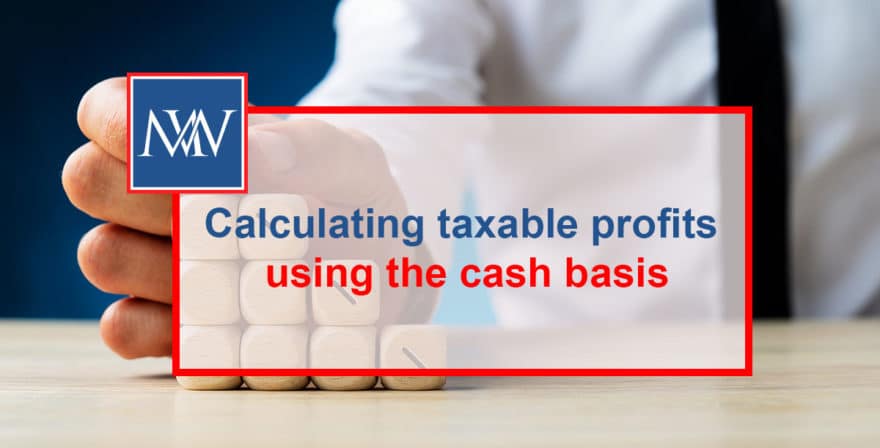
Calculating taxable profits using the cash basis
Calculating taxable profits using the cash basis, Under the cash basis, small businesses are taxed on the basis of the cash that passes through their books, rather than being asked to spend their time doing calculations designed for big businesses. For 2018/19 onwards the annual turnover limit below which a business can use the cash basis is £150,000. The exit threshold above which the cash basis may not be used is set at double the entry threshold (i.e. £300,000).
Certain types of businesses are not currently permitted to use the cash basis including limited companies.
The cash basis operates by reference to the tax year. This means that small businesses can calculate their taxable income for the tax year by adding or subtracting:
- receipts in connection with the business received in the tax year
- payments made in the tax year to cover allowable expenses
- amounts allowed for simplified expenses
The cash basis operates on a VAT-inclusive basis. This means that the full amount of receipts and payments will be counted including any VAT element. If a business is registered for VAT, any VAT paid to HMRC will be an allowable expense, and any VAT refund received from HMRC will be taxable as a receipt in connection with the business.
Receipts in the form of ‘money’s worth’ will be included, for example, the value of goods or services received from customers. In addition, a reasonable amount would need to be added to income to reflect any deficiency arising from a transaction being made other than on a commercial basis. An example would be if, after expensing the cost of purchasing stock, an item of the stock was taken for personal use without any actual payment being made.
Sale proceeds for capital assets (such as plant or machinery) whose purchase costs have previously been relieved will be taken into account as a receipt.
Under the cash basis, bank and loan interest costs and financing costs, which include bank loan arrangement fees, are allowed up to an annual amount of £500. If the business has interest and finance costs of less than £500 then the split between business costs and any personal interest charges does not have to be calculated.
Businesses should consider their annual business interest costs and if it is anticipated that these costs will be more than £500 it may be more appropriate for the business to use the accruals basis and obtain tax relief for all the business-related financing costs.
Hire Purchase interest is not included in the annual amount of £500 and can be treated as a separate expense.
The following items are not treated as income under the cash basis:
- capital introduced by the owner of the business for purposes of financing the business
- changes in the form of money, e.g. cash withdrawals from bank accounts
- loan capital borrowed by the business from third parties for financing purposes
- proceeds from disposals of durable assets, e.g. land and property, intellectual property, shares
- refunds of income tax, capital gains tax, or tax credits
With regard to expenses, the ‘wholly and exclusively’ rules continue to apply.
From 6 April 2017, the general disallowance of capital expenditure rule was replaced with a more limited disallowance of capital expenditure incurred in relation to assets which are not used up in the business over a limited period. This means that from 2017/18 onwards relief will be prohibited only in relation to costs incurred in relation to the provision, alteration or disposal of:
- any asset that is not a ‘depreciating asset’ (to be defined as having a useful life of up to 20 years)
- any asset not acquired or created for use on a continuing basis in the trade
- a car (but of course business mileage-based relief is available)
- land (as defined)
- a non-qualifying intangible asset, (as per Financial Reporting Standard 105) including education or training
- a financial asset
Costs in relation to the acquisition or disposal of a business, or part of a business, will also be excluded.
For more information Calculating taxable profits using the cash basis, Book a Free Consultation
Need Accountancy Support?
For information on bespoke training, or if you have any other questions for Makesworth Accountant, please fill in your details below




















 148
148